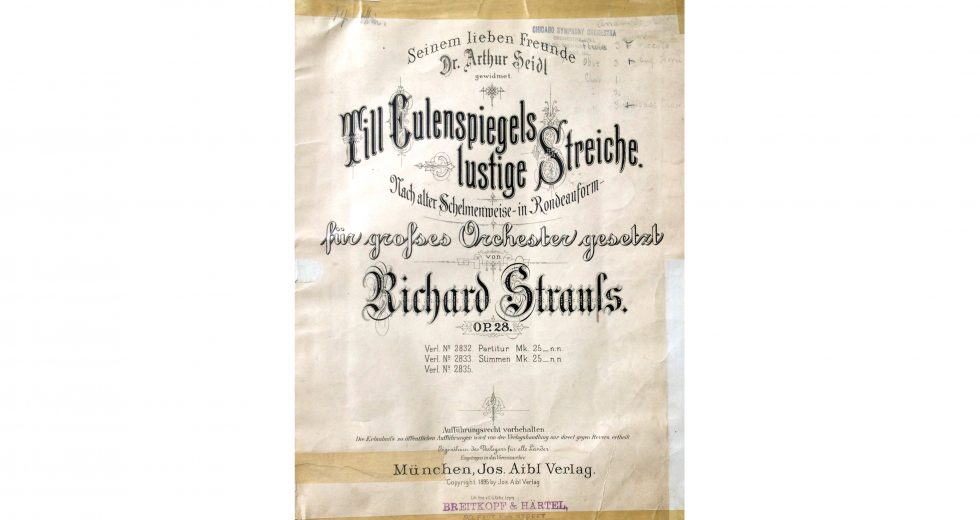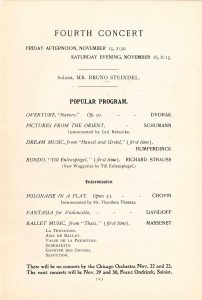
According to Theodore Thomas’s Memoirs, “While in Europe [during the summer of 1882] Thomas had, as usual, been on the lookout for musical novelties for coming programs. He had met, in Munich, a young and almost unknown composer, one Richard Strauss, who had recently finished writing a symphony. Thomas secured the first movement of the work, and was so much impressed with it that he requested the young Strauss to let him have the other three movements, promising to bring out the whole work in a concert with the [New York] Philharmonic.” Thomas kept his word and gave the premiere of Strauss’s Symphony no. 2 in F minor on December 13, 1884, thus introducing Strauss to America.
Their friendship blossomed, and as a result, Thomas introduced several of Strauss’s tone poems to Chicago audiences, including the U.S. premiere of Till Eulenspiegel’s Merry Pranks on November 15, 1895. The reviewer for the Chicago Record reported, “Strauss’s rondo is a tour de force, astonishing at every measure, irresistibly droll, full of quaint medieval quips and cranks, teeming with clever mimicry and brilliant instrumental pantomime, and, above all, a masterpiece of orchestral art. The intricacy of the score is extraordinary, the ingenious devices resorted to for effect amazing, and the humor and wholesome buffoonery of the piece unique. Nothing could have been chosen better to illustrate the immense resources of the young composer and the fertility of his genius. What is more, the piece gave the Orchestra an opportunity to display its consummate training, and it may be said that music never was played in Chicago with finer technical nicety or with more of the spirit of a composer.”
Thomas also led the Orchestra in the U.S. premieres of Strauss’s Also sprach Zarathustra on February 5, 1897; Don Quixote on January 6, 1899; and Ein Heldenleben on March 9, 1900.
Image above: Title page of Theodore Thomas’s score for Strauss’s Till Eulenspiegel’s Merry Pranks
This article also appears here.
